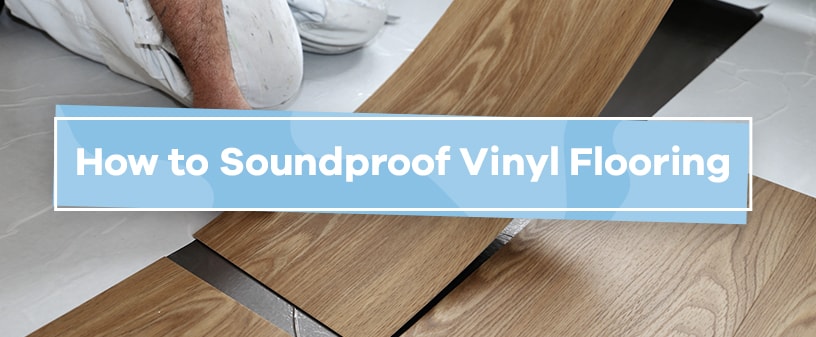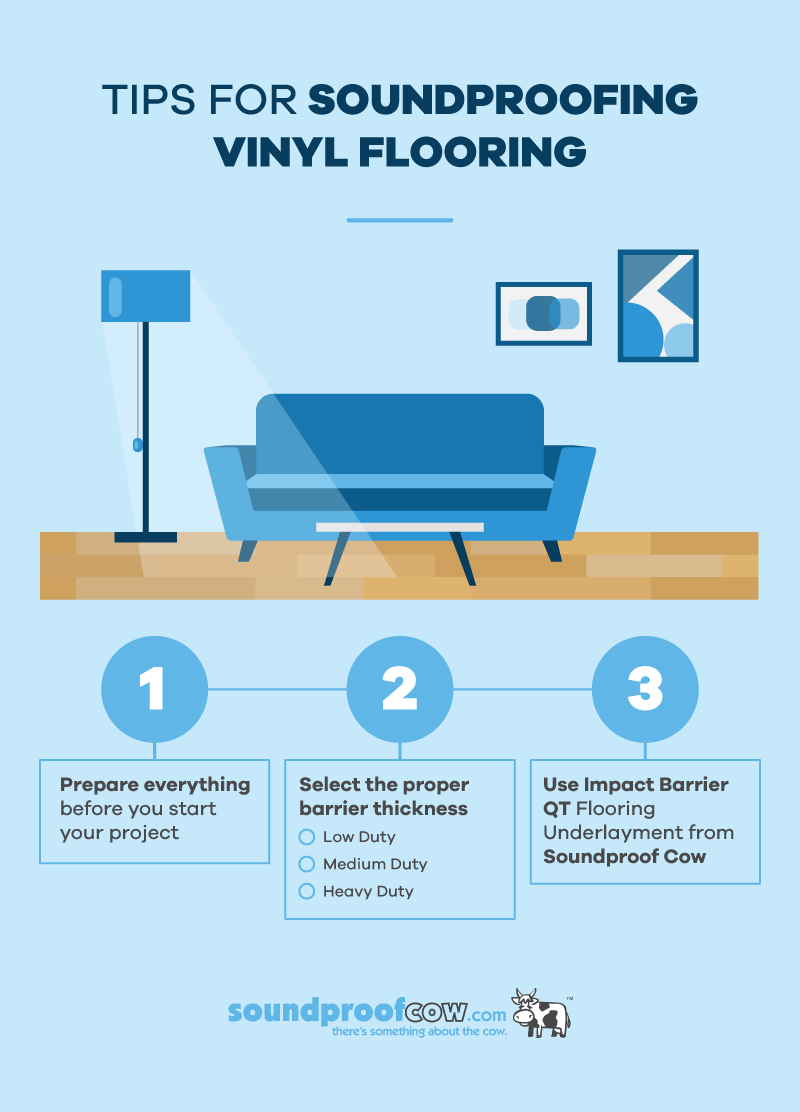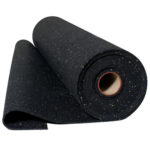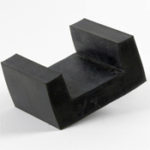
Whether you are being disturbed by sounds coming from the floor below or you want to avoid your neighbors when walking, soundproofing your floors may be beneficial for you. Soundproof Cow offers quality acoustic underlay for vinyl flooring soundproofing solutions.
Tools You Will Need to Soundproof Vinyl Flooring
If you are preparing to soundproof your vinyl flooring, these tools and materials will make the process much easier:
- Scraper: You will need a scraper to remove the existing floor before installing underlayment. This tool can effectively clear any excess fragments and adhesives from the subfloor so the soundproofing material lays flat.
- Utility knife: A utility knife will come in handy to cut and remove carpet, if needed. You will also need one to cut your floor underlayment to the correct size.
- Acoustic underlayment: The type of acoustic underlayment you choose will determine your project quality. Soundproof Cow recommends Impact Barrier QT for easy installation.
- Vinyl installation kit: Vinyl flooring is simple to install with the right tools. A rubber mallet, expansion joint spacers and a tapping block will help you install the vinyl accurately and securely.
Ways to Soundproof Vinyl Flooring
There are several ways to effectively soundproof vinyl flooring, depending on your specific needs or budget. Some of the most popular options include:
- Adding underlayment: Installing flooring underlayment is one of the most effective soundproofing solutions as it helps to minimize and absorb room noise. You can install underlayment under carpet or vinyl flooring.
- Using rugs: Filling a space with a large rug absorbs sound and reduces noise — the bigger the rug, the better the sound absorption. Specifically, thicker rugs work best for surrounding noises and vibrations.
- Sealing perimeter gaps: For a minor soundproofing solution, seal any perimeter gaps in your room. Filling spaces between the walls and floor effectively dampens exterior sound from coming in.
- Adding mass-loaded vinyl (MLV): MLV is a versatile soundproofing material that blocks sound from all directions, including walls, ceilings, doors, windows and floors.
How to Install Soundproof Underlayment for Vinyl Flooring
If you have all the materials and are ready to start, follow the steps below to maximize the noise reduction of vinyl plank flooring.
Remove the Existing Floor
If you are working with an existing space, you will need to pull up the current floor to apply the underlayment, whether you are dealing with vinyl or carpet:
- Vinyl: Remove the existing vinyl with a scraper and pry the flooring from the subfloor. Be sure to scrape away any excess fragments and adhesives from the subfloor.
- Carpet: To make the process easier, remove obstructive fixtures like doors, baseboards and molding. Then, cut the carpet into strips with a utility knife and roll it away.
Lay Down the Floor Underlayment
Apply the acoustic underlayment to the subfloor and the vinyl flooring directly on top of it. Products like Impact Barrier QT roll into place with ease — just measure the room and use a utility knife to cut the underlayment to size. It is not necessary to secure the underlayment in place, but you may.
Install the New Flooring
After placing your flooring underlayment on top of the subfloor, it is time to install your new vinyl flooring. Vinyl plank flooring is easy to install — lay one plank down and insert the next plank’s tongue under the first plank’s edge. Using a mallet, pound each seam to solidify the hold.
Tips for Soundproofing Vinyl Flooring
This product comes in three different thicknesses for different soundproofing needs — low duty, medium duty or heavy duty — and can even be made waterproof. It has high performance ratings and can make a massive difference in the sound quality of your studio, conference room or any area that requires quality soundproofing.
When you are ready to soundproof your floor, preferably before you lay down your vinyl, make sure you have plenty of Impact Barrier QT Flooring Underlayment from Soundproof Cow on hand. This affordable, highly effective recycled rubber sound barrier fits seamlessly with almost any floor material and provides better soundproofing than many other popular soundproofing options. It is safe to handle, easy to install and allows you to enjoy great floor noise control right away.
Benefits of Soundproofing Vinyl Flooring
Soundproofing your vinyl flooring will provide numerous benefits. Some will be apparent right away, while others will reveal themselves over time.
Acoustic Benefits You Will Notice Immediately
The obvious benefit that soundproofing your vinyl floor provides is noise reduction. Installing underlayment beneath your floors will treat noise in two distinct ways.
You can enjoy many of the impact soundproofing benefits of a carpeted floor without having to actually lay down carpet. Flooring underlayment is soft and absorbent. It will cushion your every step and soften the impact if something falls. You will notice less noise disturbance from footsteps and other movement on your vinyl flooring.
You will be able to effectively block airborne noise as well. Underlayment will increase the floor’s mass and density. As a result, sound will lose energy as it attempts to pass through the floor. Less noise will travel to and from the room below.
Vinyl flooring also offers practical benefits in music studios and other rooms where sound quality is critical. Vinyl’s reflective properties will help your space maintain a natural sound while acoustic treatments on your walls absorb unwanted frequencies.
Benefits You Will Notice Over Time
In addition to the initial acoustic benefits, a quality underlayment may help your vinyl flooring last longer and look better. The cushion that underlayment provides will help your floor resist damage from heavy contact, which can prevent cracks and dents.
All the while, you will enjoy the aesthetic and practical benefits of choosing vinyl flooring over a carpet. Vinyl flooring looks amazing, and you may prefer it depending on your room’s design. Vinyl is also easier to clean than carpet, which makes it ideal in kitchens and other spaces where messes may occur. The look and convenience that your soundproofed vinyl floors provide will pay dividends over time.
Contact Soundproof Cow for Vinyl Floor Soundproofing and Other Soundproofing Assistance
Soundproof Cow can easily help you soundproof your floor. Our underlayment for vinyl flooring — Impact Barrier QT — is a simple solution to your noise issues.
Of course, there is a lot more to great noise control than just floor soundproofing. There is the ceiling, the walls , and even pipes or door and window areas for you to consider, too.
That is why we offer a complete range of soundproofing products for your home, studio or office and experts who can teach you exactly how to use them. If you have any questions about how to install any of our products, the environmental advantages of using these products or which products will work best for your application, please contact us today or anytime.
Frequently Asked Questions
Here are some of our most frequently asked customer questions related to soundproofing vinyl floors.
Is Vinyl Flooring Good for Soundproofing?
While vinyl flooring is quieter underfoot than laminate, it reflects most noise rather than absorbing it. However, vinyl is ideal to use with acoustic underlayment, combining each product’s positives to produce effective soundproofing.
Does Vinyl Flooring Absorb Sound?
Vinyl flooring does not absorb sound on its own. Instead, it acts as a barrier to reflect sound waves, rather than absorb them. Pair the flooring with an underlayment for the most effective sound absorption.
Can You Put a Sound Barrier Under Vinyl Plank Flooring?
Yes, you can put a sound barrier under vinyl plank flooring — in fact, we recommend it! The combination of a sound barrier and vinyl plank flooring can reduce noise from above and below the floor in their respective directions.










